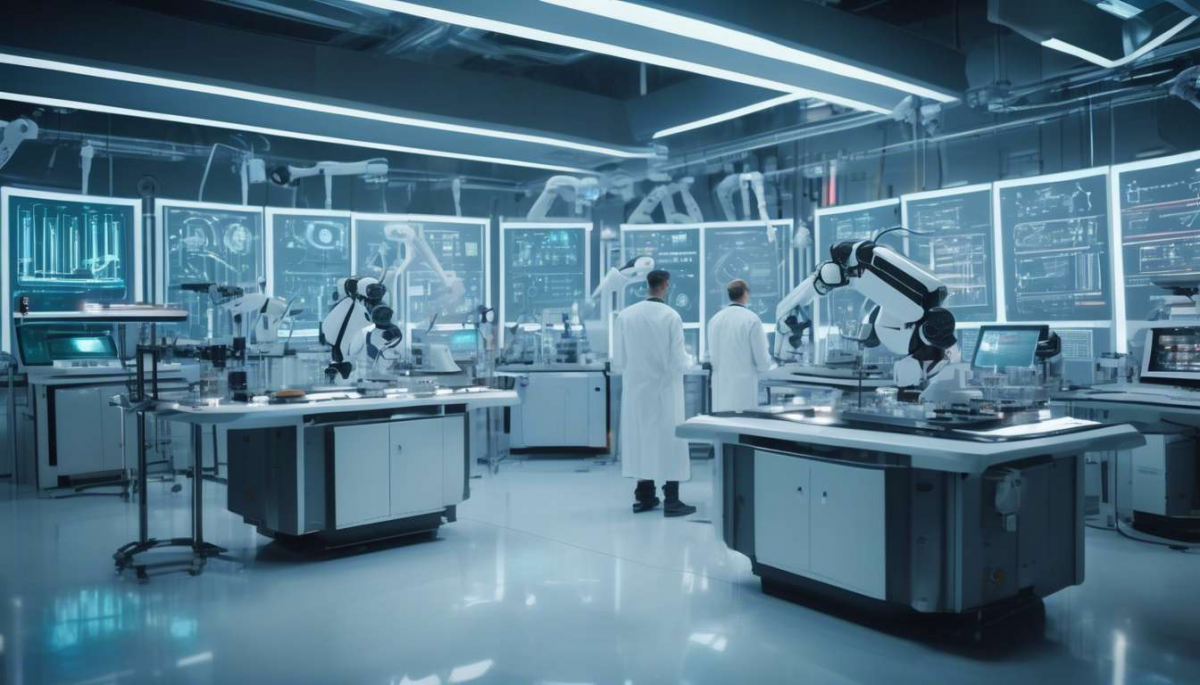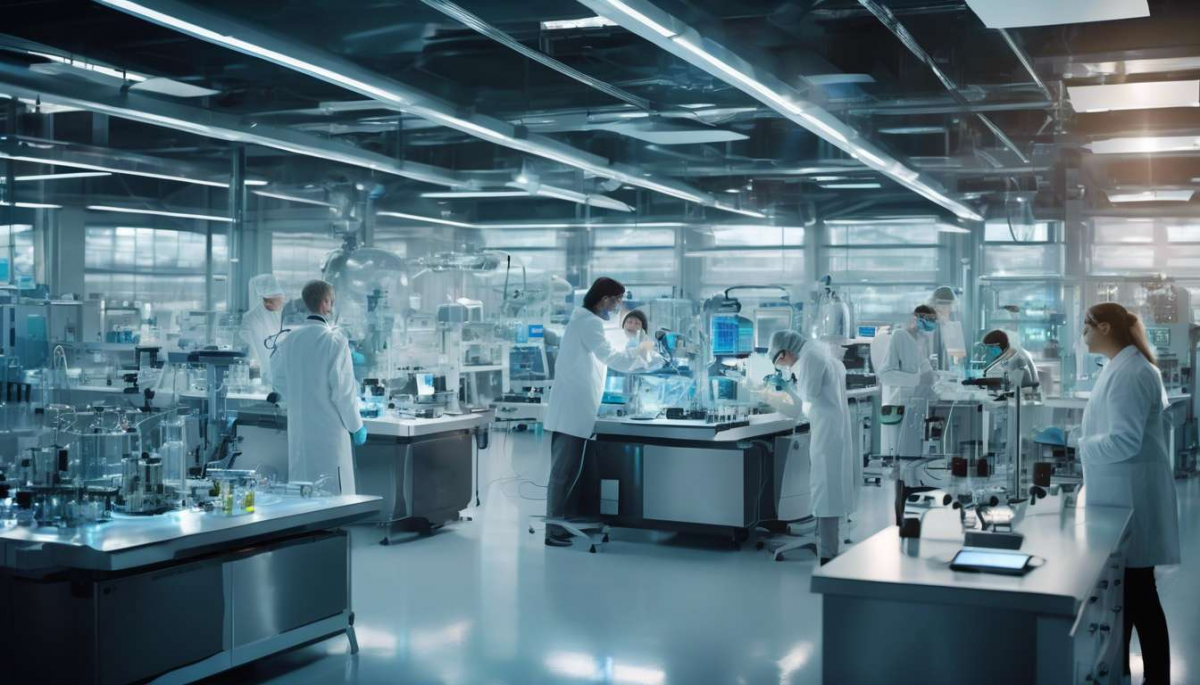In today’s competitive business landscape, companies face increasing pressure to develop solutions that not only meet but exceed the highest industry standards. These organizations are at the forefront of innovation, driven by a commitment to quality, sustainability, and customer satisfaction.

By leveraging cutting-edge technology and adopting best practices, these companies ensure their offerings are not only effective but also resilient and adaptable to changing market demands. The pursuit of excellence is evident in their:
- Robust research and development efforts
- Rigorous testing protocols
- Adherence to stringent regulatory requirements
Furthermore, collaboration with industry experts and a focus on continual improvement enable these companies to stay ahead of the curve. They deliver products and services that set benchmarks for others to follow.
This article explores the strategies and methodologies employed by leading firms dedicated to creating solutions that consistently align with the highest requirements, highlighting their impact on various sectors and the broader economy.
To delve deeper into the innovative practices and success stories of these pioneering companies, get more information online.
Innovation through Advanced Technologies
Many companies are driving innovation by leveraging advanced technologies to develop high-requirement solutions. The strategic integration of cutting-edge technologies enables organizations to enhance the quality of their products and services.
This focus on innovation not only meets the evolving demands of consumers but also fosters a sense of community among stakeholders who value sustainable practices.
Innovation as a Catalyst:
- Serves as a catalyst for creating superior quality offerings.
- Ensures that products are not only efficient but also environmentally responsible.
Sustainability Commitment:
- Companies committed to sustainability are adopting technologies that:
- Reduce waste
- Minimize environmental impact
- Maintain the highest standards of quality
This approach aligns with the growing consumer preference for sustainable solutions, strengthening the connection between businesses and their audiences.
Continuous Improvement Through Advanced Technologies:
- Facilitates continuous improvement.
- Allows companies to adapt quickly to market changes.
- Maintains high-quality standards.
The emphasis on innovation and sustainability reflects a collective commitment to progress, uniting businesses and consumers in a shared vision for a better future.
Quality Assurance and Compliance Standards
Strict adherence to comprehensive quality assurance and compliance standards is essential for companies to deliver reliable and trustworthy high-requirement solutions. These standards ensure that products and services not only meet regulatory obligations but also exceed customer expectations.
The alignment with rigorous quality protocols fosters an environment where innovation thrives, allowing companies to craft solutions that stand out in the marketplace.
Key Components:
- Quality assurance processes are integral in maintaining the integrity and performance of products.
- Compliance standards guarantee that these products align with industry mandates.
This dual focus enhances sustainability by:
- Minimizing waste
- Optimizing resource usage
These efforts reflect a commitment to responsible business practices. Companies adopting stringent standards demonstrate leadership in their field, fostering a sense of trust and belonging within their clientele.
In an era where customer loyalty hinges on reliability and ethical practices, maintaining high standards in quality and compliance becomes a differentiator. The pursuit of excellence through these measures assures stakeholders of a company’s dedication to delivering superior and sustainable solutions.

Industry-Leading Research and Development
Pioneering advancements in research and development enable companies to create cutting-edge solutions that address high-requirement challenges effectively. Innovation serves as the cornerstone for these organizations, driving the continuous pursuit of excellence.
By investing in robust R&D initiatives, companies are able to deliver exceptional quality, meeting and often exceeding industry standards. Commitment to quality ensures that products and services not only fulfill but anticipate market demands.
Through meticulous research, organizations uncover insights that lead to innovative breakthroughs, setting benchmarks for others to follow. This dedication to quality fosters a sense of belonging among stakeholders, as they become part of a collaborative ecosystem that values excellence and progress.
Moreover, sustainability is integrated into the fabric of R&D processes. Companies prioritize environmental responsibility, ensuring that new developments align with sustainable practices.
This focus on sustainability resonates with communities and consumers, reinforcing a shared commitment to a better future. As a result, industry-leading research and development not only drive innovation but also cultivate a culture of shared values and responsibility.

Sustainable Solutions for the Future
Leading companies are actively developing eco-friendly solutions that address future challenges, ensuring long-term viability and environmental stewardship. Emphasizing innovation, these organizations integrate cutting-edge technologies and methodologies to produce sustainable solutions that meet the highest quality standards. The commitment to sustainability not only reflects a dedication to environmental responsibility but also aligns with the growing demand for products that support a healthier planet.
The pursuit of sustainability has become a driving force for innovation, as businesses seek to balance economic growth with ecological preservation. By focusing on:
- Energy-efficient processes
- Renewable materials
- Waste reduction
companies are redefining industry standards and setting new benchmarks for quality. These efforts contribute to a shared vision of a sustainable future, fostering a sense of belonging among stakeholders who prioritize environmental well-being.
Incorporating sustainability into the core business strategy ensures that companies remain resilient and adaptable to changing global dynamics. This forward-thinking approach guarantees that the solutions developed today will effectively address the challenges of tomorrow.

Customer-Centric Product Development
In today’s competitive market, companies are increasingly focusing on customer-centric product development to tailor solutions that meet specific consumer needs and preferences. This approach prioritizes understanding and addressing the unique requirements of the consumer, fostering a sense of belonging among users who seek products that resonate with their values and expectations.
Innovation plays a critical role, as businesses leverage cutting-edge technologies and creative strategies to design products that deliver superior quality. By emphasizing quality, firms ensure that their offerings not only satisfy but exceed customer expectations, thereby building trust and loyalty.
Moreover, sustainability has become an integral component of customer-centric product development. Companies are integrating eco-friendly materials and processes to create products that minimize environmental impact, aligning with the growing consumer demand for responsible and sustainable solutions.
This commitment to sustainability not only enhances product appeal but also strengthens the brand’s reputation as socially responsible, fostering a deeper connection with consumers who prioritize environmental stewardship.

Continuous Improvement and Market Adaptation
To remain competitive, companies must engage in continuous improvement and adapt to evolving market demands. This approach ensures that innovation, quality, and sustainability are at the forefront of business strategies.
By fostering a culture of innovation, organizations can develop cutting-edge solutions that not only meet but exceed industry standards. This commitment to quality ensures that products and services consistently satisfy customer expectations and strengthen brand loyalty.
Furthermore, sustainable practices are vital for long-term success and community support. Companies that prioritize environmental responsibility and resource efficiency resonate with stakeholders who value ecological stewardship. Integrating sustainability into business operations not only reduces environmental impact but also enhances operational efficiency and cost-effectiveness.
Staying attuned to market trends and consumer preferences is essential for maintaining relevance. Businesses that are agile and responsive to changes in the market environment are better positioned to seize new opportunities.
By continually refining processes and offerings, companies can ensure their solutions remain desirable and aligned with the highest industry requirements.